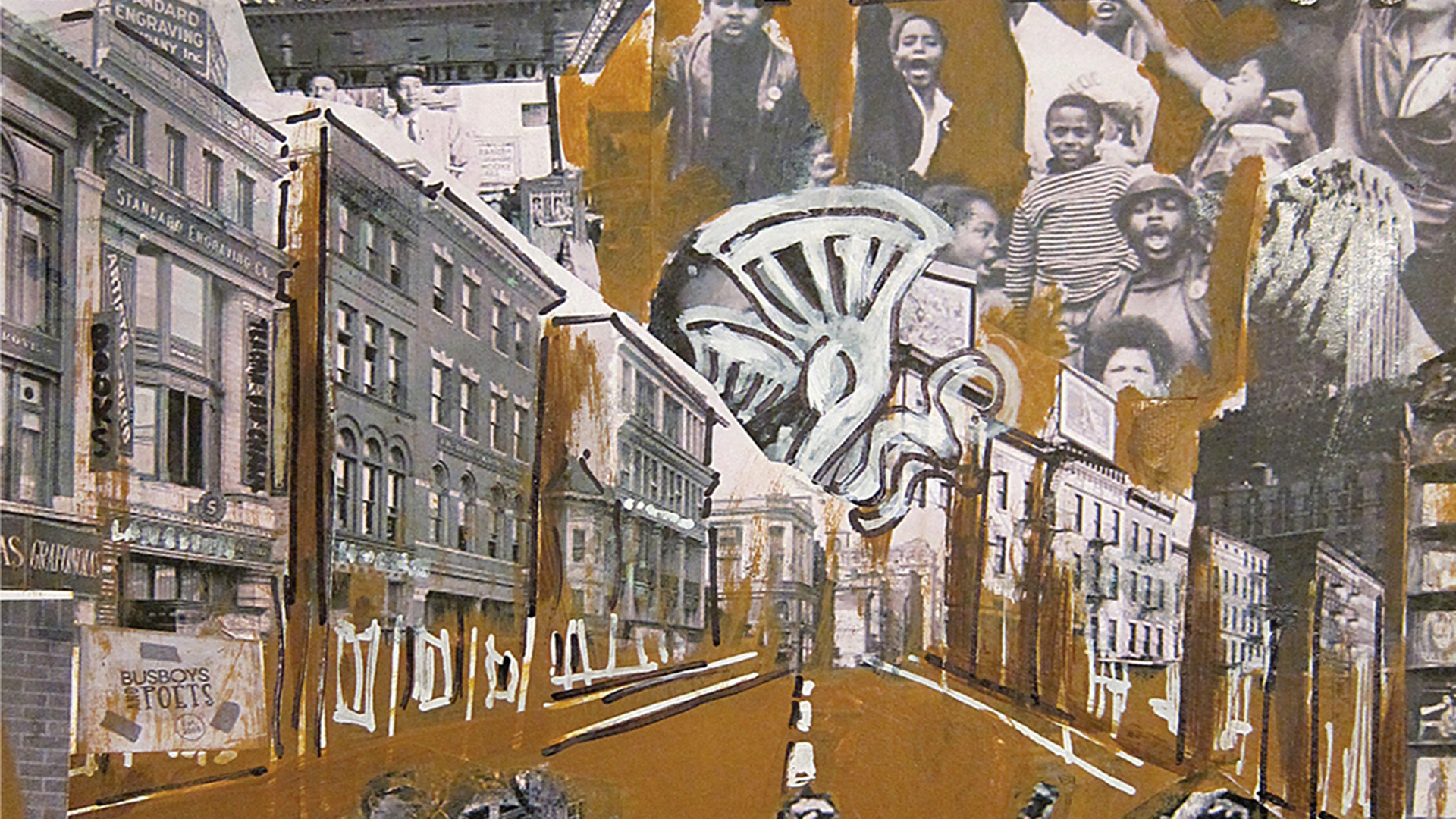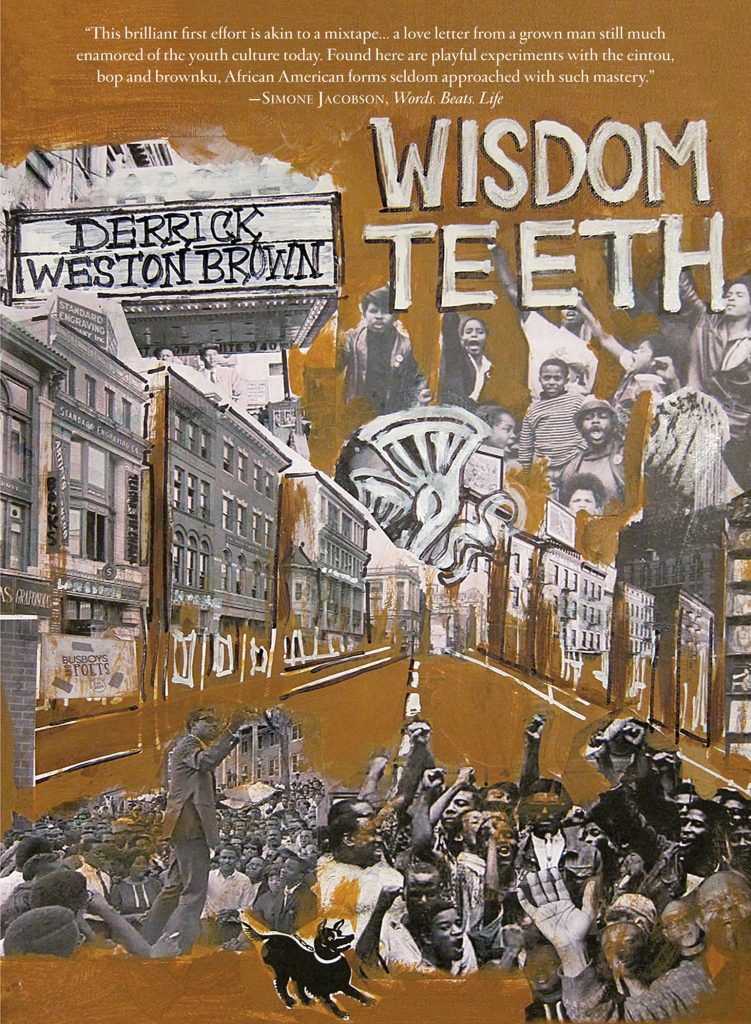By Alan King
alanwking.wordpress.com
April 21, 2011
Derrick
Weston Brown holds an MFA in creative writing from American University.
He is a graduate of the Cave Canem summer workshop for Black poets and
the VONA summer workshop.
Snagglepuss is bitter. He airs his
frustrations with the Pink Panther on E! True Hollywood Story, after
their short-lived love affair:
“When the big money came calling,
Ol’ Pinky packed his bags and gave
me some song and dance about
how
I’d never have to work again […]” (from “Snagglepuss Spills his Guts
on E! True Hollywood Story”).
Then there’s Bonita Applebum.
She’s not just a classic hip hop song anymore. In fact, she’s a grown
woman “with a mortgage/ and two degrees under her belt” (from
“Remembering Bonita Applebum”).
These are just a few of the characters that populate Derrick Weston Brown’s debut poetry collection, Wisdom Teeth.
It’s an apt title for a book in which the speaker cuts his teeth on
issues ranging from slavery and gentrification to love and hip hop.
I fell in love with DC all over again after reading “Missed Train”, though that poem could be a testament on dating in DC:
I smelled you at the Metro stop
Tasted you on the Yellow
Glimpsed you on the Green
Caught you on the Orange
Loved you on the Red
Lost you on the Blue
Now I need a transfer
or at least exit fare.
The
elusive woman in “Missed Train” could be a metaphor for unmet
expectations either on a date or in a relationship that takes us “for
every dime” after investing our time in other people with no returns.
In Wisdom Teeth,
the speaker’s searching for stability in every aspect of his life. It’s
a journey that takes him through 110 pages and five sections—Hourglass
Flow, The Sweet Home Men Series, The Unscene, Wisdom Teeth and Ajar.
And
if you’re new to the city, the speaker lets you know what to expect in
“What It’s Like to Date in D.C. for Those Who Haven’t”: “It’s like
having a mouthful of prayers/ when all you looking for is that one/
Amen.”
Reading Wisdom Teeth, I felt like a passenger
invited along for the ride, especially with the poem “Building”. The
speaker’s details brought me with him into the coffee shop, where I
noticed the “syrup of sunlight” like a second glaze on the wooden
tabletops.
I heard the “trash talk and chuckles” of black men
playing dominoes. I dug the music in “the snap crack/ of dotted flat
backs” and the “dry bones/ glossy bones”.
It would have been easy
to take that moment as a commentary on brotherhood and bonding, and not
realize the game of bones is just a vehicle the speaker uses to drive
his point home with the reader. The true commentary’s in the “steady
trash talk” after “Fingers drum the table”: “I’m on my third house./
Where you at?! Jati?/ HUD is officially/ in the building!”
Watching
“the bones…/ like unhinged teeth”, I thought of the deteriorating
houses in DC’s rundown neighborhoods. Watching as “Jati resets the
fracture/ smiling as houses change ownership”, I thought of so-called
neighborhood revitalization projects that displaced former residents.
And Jati’s response to his friend’s trash talking? “Eminent domain Fred!/ You getting gentrified!”
I
loved the speaker’s clever use of brothers bonding over a game as
commentary on the changing demographics in America’s major cities. The
speaker’s playful tone in “Building” reminded me how some of us use
humor to help swallow those bitter truths.
What also helps those
truths go down easy is the fellowship of black men who “finish/ each
other’s sentences” and chase red beans and rice “with/ rum that/ warms
the gullet/ makes gut chuckles flow easy” in the poem “Kitchen Gods”.
The
men in this poem could be my dad, uncles and grandfather. These are men
who “dust off/ old stories like records that hadn’t seen a turntable/
in some time.” And, contrary to masculine myths and stereotypes, these
ordinary men “resuscitate the/ ghost of old lovers/ angry indifferent or
otherwise.”
That resuscitation is really these guys assessing their
life choices—where they’ve been and where they are now. These are
hardworking men who support their families, men who’ve grown as a result
of their experiences.
The physical details in “Kitchen Gods” are
striking. I could see these guys mapping “[…] out/ a woman’s
dimensions”, molding “hips out of thin air/ recreating/ her walk and/
arching calves.” I also saw the men dapping up each other and bumping
fist “so hard/ rings skip sparks”.
I could hear the conversations
punctuated with “g’dams” and “g’lords”. I even smiled at the memory of
being shooed “out of the kitchen/ with gentle hands” when I was too
young for the adult talk. Now that I’m old enough, I can appreciate the
times I’ve been a part of “a small kitchen crew”.
One reason I love Wisdom Teeth is the poem “Gust”:
The sky snarled.
We heard God swallow cumulus,
stratus, and anvil headed nimbus
before the hush.
We ventured outside
Peered up into the calm.
The sky a frosted snow globe
swirl of stars.
The moon
a glossy clear polished
fingernail sliver
winked.
Odd
The wind so strong
I could lean into it
arms out and not fall.
I was Pisa.
What did I know
of nature’s way
of teaching lessons?
That there is
an eye of the storm.
Watch me smile.
My back to the rifle
sight of lassoed menace
clueless to the coming stretch
and yawn of ruin.
In
“Gust”, the speaker revisits Charlotte, North Carolina, ravaged by
Hurricane Hugo in 1989. I love this poem for other reasons.
If
storms are metaphors for troubling times in our lives, then “Gust”
speaks to the current political climate: the US military in Libya,
rising militias and hate groups, politicians cutting funds for social
programs as a solution to the budget deficit.
The “cumulus,/
stratus, and anvil headed nimbus” were the delusions of politicians and
some finance experts who convinced everyone else that the markets were
economically sound when history has shown us otherwise. “What did I
know/ of nature’s way/ of teaching lessons?” Just replace “history” with
“nature” and I’m sure that line says what we all were thinking.
God
swallowing those delusions was reality setting in. That an alarming
amount of people lost their homes to foreclosures makes Hurricane Hugo a
metaphor for the current economic crisis, its “rifle/ sight of lassoed
menace”.
That corporate CEOs, whose businesses stayed afloat with
bailout money from the federal government, went on with business as
usual is the sign of lessons not learned. “Gust”, in its own way, warns
against that kind of ignorance that keeps us “clueless to the coming
stretch/ and yawn of ruin.”
Wisdom Teeth is right on
time. In this collection, as one writer puts it, “Truth cuts its way
beneath the unspoken like new teeth on their way to light.” I couldn’t
agree more, grateful for their arrival.







